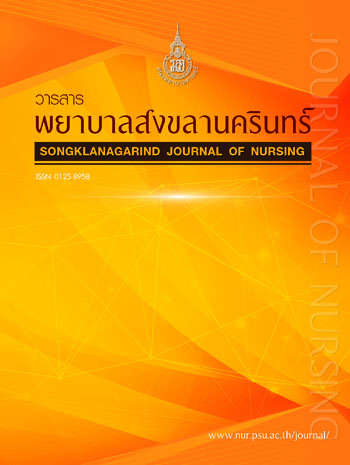The Effectiveness of Self-Efficacy Enhancement Program on Knowledge, Attitudes and Behaviors of the Village Health Volunteers Providing the Long Term Care for the Elders, Khon Kaen province
Main Article Content
บทคัดย่อ
The purpose of this quasi-experimental research aimed to test the effectiveness of self-efficacy enhancement program on knowledge, attitudes and behaviors of village health volunteers providing the long term care for the elders before and after using the self-efficacy enhancement program. The participants were 50 village health volunteers working at Ban Ped Sub-district, Muang District, Khon Kaen Province.The study was conducted from November 2014 to March 2015. The instrument used in the experiment was the self-efficacy enhancement program. The instruments for data collection included the tests of knowledge,
the questionnaire of attitude and behavior. Data were analyzed by descriptive statistics and paired t-test.
The results showed that most of the village health volunteers were female (98%). The age range was 51-60 years (46%). One-third of them graduated from primary school (36%). The period of working as the village health volunteers was 1 year to 5 years (38%). The reason of becoming the village health volunteers was that they were persuaded by their friends who were village health volunteers (58%). In addition, 72.0 percent of the village health volunteers had never been trained on the elderly issues or chronic diseases.
After participating in the effectiveness of self-efficacy enhancement program on knowledge, attitudes and behaviors of the village health volunteers providing the long term care for the elders, mean scores of knowledge, attitudes and behaviors of the village health volunteers were significantly higher than before using the program (p<0.05).
The self-efficacy enhancement program can be applied to improve knowledge, attitudes and behaviors in the village health volunteers.


